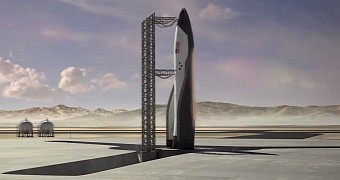Researchers at Colorado-based Escape Dynamics managed to test if it might really be possible to launch spacecrafts using microwaves sent from the ground and allow a single-stage spacecraft.
If their idea works, major cost cuts will be possible for sending satellites and humans into orbit. Spacecrafts today use multi-staged rockets that ignite in sequence for the actual spaceship to enter orbit, while the propellant in the rockets is burned. Apparently, the innovation relies in having microwaves beamed from the ground to heat the hydrogen carried by the space-bound vehicle to push it into space. Tests carried at the Colorado facility showed this technique to actually work.
They set up a hydrogen-based thruster on the ground and see how much thrust is generated. They managed to reach an impulse of 500 seconds when using hydrogen, and they believe that once switching to hydrogen, the impulse will grow to 600 seconds, which is just enough to push a small craft like a satellite into space.
Unsurprisingly, there are safety concerns
On larger vehicles like space shuttles, the microwaves would strike the heat shield at the bottom of the aircraft, powering an electromagnetic motor that would heat hydrogen as it was released from the tank. The heated hydrogen would expand and would exit at a high velocity through a nozzle, creating thrust.
Once in orbit, the vehicle would release its cargo and then glide back to earth. In short, the vehicle wouldn't need to carry its own propellant anymore, as its lifting capabilities will be supplied by Earth-bound microwaves emitters.
However, bombarding the spacecraft with microwaves would need an incredible amount of electrical power and might affect the upper Earth atmosphere when massive amounts of microwaves would be directed towards the spaceship during its final stages of near-orbit flight. On the other hand, if this new launch system proves safe and effective enough, we'd see launch costs go down to a fraction of what we spend today.

 14 DAY TRIAL //
14 DAY TRIAL // 